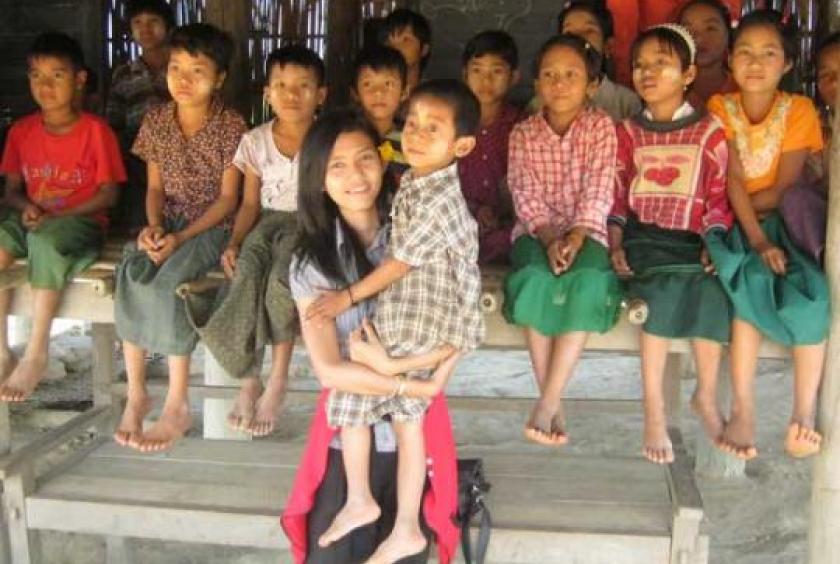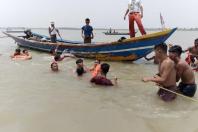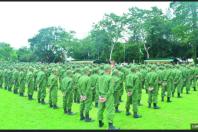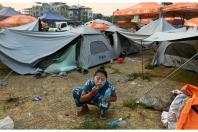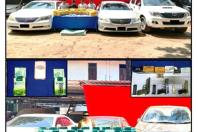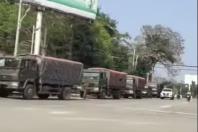Philanthropy has enthralled Khin Hnin Kyi Thar since her childhood as a family value passed down by her parents. As a journalist, she and her colleagues founded the “Individual Philanthropists Network” that extols the virtues of philanthropy in the country.
Her philanthropic work won her the special Citizen of Burma Award last year while her life story inspired a novel by Lin Kar Yi Kyaw. The young woman speaks to Myanmar Eleven about the social implications of philanthropic giving.
Tell us about your childhood.
Both of my parents were civil servants. I grew up in Yesin. During my childhood, my father taught me the importance of making an honest living. Another thing is to make a living without committing a sin. My father never did any sinful business so we were rather poor. But at the time, my mother was able to pay full tuition for children so that they could go to school.
She sold fried tofu to keep us in school. Despite his meagre income, my father spent his free time repairing roads, using the equipment bought with his own money. So I grew up seeing their good examples.
When did you become interested in philanthropy?
Around second or third grade. At the time my mother was selling fried tofu to fund the school fees for needy students and my father was repairing the roads in Yesin. Both my parents told me not to pass over something that I can do on my own. I believe I was like that when I was young.
Tell us about the Individual Philanthropists Network.
I went into journalism in 2010. You can say I was lucky at the time because my supervisory editor asked me to write weekly articles. As I had been doing philanthropic work since 2008, I was asked to write about the lives of those in philanthropic groups. I was also asked to write a piece about homeless children. At the time, a friend in Yesagyo, Magway Region told me about these sickly abandoned people living on a hill west of Myaing. I became very interested. A philanthropic group in Yesagyo was conducting a training course on philanthropy so I went there. Together with the group, I got to the hill and found the community needed everything including social, health, and education [support]. Back in the newsroom, I wrote an article about it. After the article was published, it attracted donations, and the Individual Philanthropists Network was born on December 29, 2012.
How bad was the situation in the western area of Myaing?
The hill is about 17 miles to the west of Myaing. I heard that some people had been left to fend for themselves on a mountain, sick and unwanted. But when I got there, I found that they were actually local villagers who were not sick at all. They were just healthy people. But they were homeless and unemployed without any farmland of their own. They went up the mountain because they had no farmland and didn’t want to come back down. The oldest was a 70-year-old man who had lived there for over 40 or 50 years. None of them were literate. They weren’t interested in learning. They got married at a young age, maybe 13 or 14 so there were children in every house. There were many illiterate children. The rural folks made a living by slashing and selling bamboo. With the bamboo forest area depleted, the area was hotter.
It didn’t rain anymore. With the environment ruined, life was difficult for them. They hired some teachers to teach the children. The teachers got paid Ks 500 per student. As the monsoon caused a landslide, they were unable to cut bamboo and pay the teachers. The teachers then left. So the children were unable to complete their education as school opened. Only a few local residents sometimes go to the mountain village. Outsiders rarely go there.
What sort of help have you provided to the mountain village?
Since that time, we have been providing health education and medical treatment to the locals. As for children, our aim is for them to be studying in school peacefully without worrying about the fees. Another thing is physical development and mental development. For physical development, we dug wells and built reservoirs and schools. We are also working towards employment and regional economic development. The mental [development] is concerned with the residents’ interest in carrying out their regular businesses. So we are working on three main fronts.
Does your philanthropic work cover other places as well?
Of course, whenever we get a chance. Our network is focused on this area at the moment so we are not working in other areas. But we make donations on behalf of other philanthropic organisations in the event of natural disasters like flooding. These organisations are located in Myanmar but supported by Myanmar people living abroad. Our organisation also accepts donations.
Young people these days get into the philanthropic spirit. What do you think?
It’s great. Since 2008, ‘waves of philanthropy’ have made great inroads into [the country] one after another and these waves have become bigger this year. While the government is carrying out development programmes, these philanthropic organisations are helping to fill the gaps. The government shouldn’t stand still because these organisations are carrying out their missions.
Tell us about the award.
There are awards given to philanthropic organisations by Myanmar people living abroad. In the past, they only gave the Citizen of Burma Award but they presented the special Citizen of Burma Award to me last year. They told me that the network has made stellar achievements within a short time since its inception. They believed our network has potential to achieve more in development in the longer run. That’s why I deserved the award.
What’s your message to the philanthropists out there?
Just like my mother taught me, there are many things we can do. We shouldn’t leave them behind by thinking it’s not possible. Some people think philanthropy takes lots of money and time and they can only help if they have full backing from their families. Both my parents were civil servants. We are just a normal family. I’m just a salary worker. Another thing is that I’m a journalist so my work starts when I open my eyes and ends when I close them. I don’t have any free time. So philanthropy doesn’t take a lot of time or money. Your family doesn’t need to be rich to do philanthropic work. I only think about doing what I can do. We’re not doing this for fame or success or win awards. We want to leave behind a better world and future.


